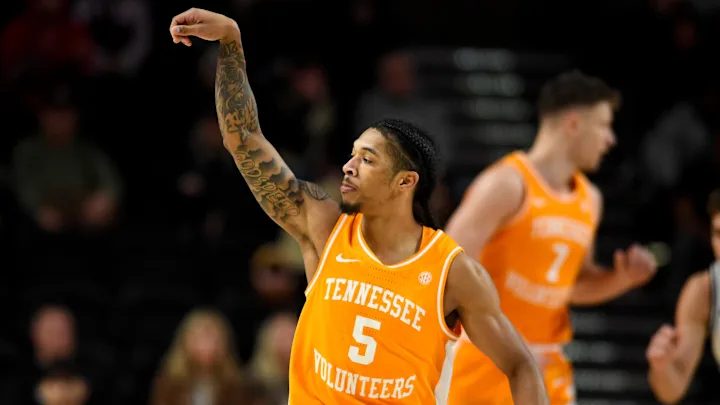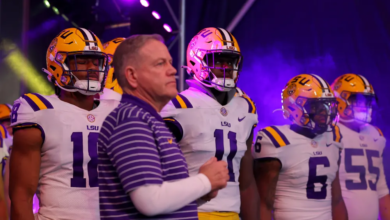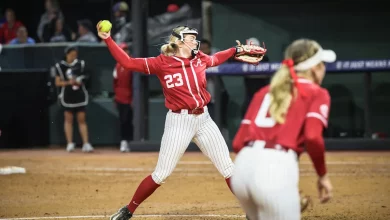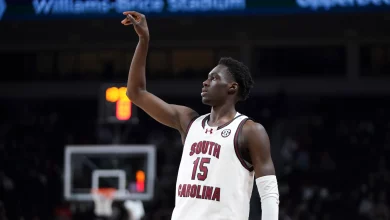Tennessee Volunteers Basketball Comeback Falls Short In Nashville

On a chilly January evening in Nashville, the Tennessee Volunteers basketball team found themselves locked in an intense battle against their in-state rivals, the Vanderbilt Commodores. The matchup was one that carried significant weight in the Southeastern Conference (SEC), with Tennessee ranked as the #6 team in the nation and Vanderbilt looking to prove they could compete with the league’s elite. As the game unfolded, Tennessee’s comeback attempt fell short, and the Commodores secured a hard-fought victory that not only added a blemish to Tennessee’s record but also sent ripples through the SEC standings.
This article will delve into the details of Tennessee’s disappointing loss in Nashville, examining the factors that contributed to their inability to complete the comeback, key moments in the game, and what this defeat means for the Vols moving forward in the season.
A Rocky Start for Tennessee
The game began with a sense of urgency for both teams, but it was clear early on that Tennessee was not firing on all cylinders. Vanderbilt, playing at home in Memorial Gymnasium, came out with a tenacious defensive effort and executed their game plan to near perfection. The Commodores capitalized on the Vols’ early mistakes, forcing turnovers and converting them into easy points.
Tennessee, typically known for their defensive prowess, struggled to match Vanderbilt’s intensity. The Vols were uncharacteristically slow in their rotations and had difficulty executing their offensive plays. Turnovers were a major issue in the first half, with Tennessee coughing up the ball repeatedly and failing to take advantage of their opportunities.
Vanderbilt’s defense, led by senior guard Tyrin Lawrence, was stifling. Lawrence’s ability to lock down Tennessee’s primary ball handlers disrupted the Vols’ offensive flow, forcing them into rushed shots and poor decision-making. Additionally, the Commodores’ quick ball movement on offense created wide-open looks, and their sharpshooters took full advantage. Vanderbilt built an early lead, exploiting Tennessee’s offensive inefficiency and capitalizing on their mistakes.
By halftime, the Vols found themselves trailing by 14 points—a deficit that seemed insurmountable given how well Vanderbilt was playing. As the teams entered the locker rooms, there was a palpable sense of frustration from Tennessee’s side, as they had shown flashes of their usual defensive dominance, but the offensive struggles were holding them back.
The Vols’ Second-Half Resurgence
When the second half began, Tennessee head coach Rick Barnes made clear adjustments to his team’s approach. The Vols came out with a heightened sense of urgency, determined to claw their way back into the game.
The first key adjustment Tennessee made was improving their defensive intensity. The Vols came out in a more aggressive full-court press, which forced Vanderbilt into some hurried decisions and rushed shots. Tennessee’s defense, one of the best in the country, began to look like itself again. Josiah-Jordan James, one of Tennessee’s most versatile defenders, was tasked with guarding Vanderbilt’s leading scorer, Lawrence. James’ defensive presence slowed down the Commodores’ offensive flow and forced them into more contested shots.
Offensively, Tennessee’s ball movement improved, and the team started to find rhythm with more quick passes and better spacing on the floor. Sophomore guard Zakai Zeigler, who had struggled with turnovers in the first half, started to assert himself as a playmaker. His vision and quickness allowed him to get into the lane and create opportunities for his teammates.
Meanwhile, senior guard Santiago Vescovi, who had been quiet in the first half, found his stroke. He hit a series of crucial three-pointers that cut the lead down and injected some much-needed energy into the Vols’ comeback efforts. Tennessee’s offense began to flow better as Vescovi took control, scoring in transition and hitting timely shots.
The Vols’ defense created turnovers that led to fast-break points, and suddenly the lead was shrinking. Tennessee went on a run to pull within single digits, and with just under 10 minutes left in the game, they had clawed their way to a 3-point deficit. The energy in the arena shifted, with Tennessee’s bench and fans sensing that a comeback was possible.
The Commodores, however, weren’t about to back down. They responded with a solid defensive stand and some timely shooting of their own. As Tennessee closed the gap, Vanderbilt tightened up their defense and made key shots when they needed them most. Forward Liam Robbins, who had been a dominant presence in the paint all night, continued to be a problem for Tennessee’s defense. Robbins’ ability to control the glass and score inside gave Vanderbilt the cushion they needed to maintain their lead.
Key Moments in the Game
While Tennessee’s comeback attempt was admirable, it ultimately fell short due to a series of key moments that didn’t go their way. Let’s take a closer look at the pivotal plays that determined the outcome of the game:
1. Vanderbilt’s Late Free-Throw Shooting
In the final minutes of the game, Vanderbilt was able to extend their lead at the free-throw line. With Tennessee fouling to stop the clock and put pressure on the Commodores, Vanderbilt’s shooters remained calm under pressure. Lawrence, Robbins, and guard Jordan Wright all converted crucial free throws that kept Tennessee at arm’s length. Despite Tennessee’s defensive pressure, the Commodores were able to effectively execute in crunch time, sealing the game with their free-throw shooting.
2. Missed Opportunities on Offense for Tennessee
Tennessee’s offense showed life in the second half, but they were ultimately unable to capitalize on key possessions. With the game in the balance, the Vols missed several open three-pointers and layups that would have closed the gap even further. Vescovi, who had been stellar in the second half, missed a critical three-pointer that would have tied the game with just under two minutes remaining. Similarly, Nkamhoua, who had been dominant in the paint at times, missed a couple of easy layups that could have brought Tennessee closer. These missed opportunities were the difference between an upset victory and a disappointing loss.
3. Tennessee’s Defensive Lapses in the Final Minutes
While the Vols’ defense improved significantly in the second half, they had a few lapses at crucial moments. In particular, Tennessee allowed Vanderbilt to get several easy looks at the basket late in the game. Vanderbilt’s balanced offense, with players like Robbins and Wright stepping up when needed, was able to break through Tennessee’s defense at key moments. With the game on the line, the Vols were unable to make the necessary stops to complete their comeback.
What This Loss Means for Tennessee
Tennessee’s loss in Nashville is a bitter pill to swallow, especially given the team’s lofty ranking and expectations heading into the game. The Vols entered the matchup with high hopes of continuing their dominance in the SEC and solidifying their spot as one of the top teams in the nation. A loss to a rival like Vanderbilt stings, but it’s important to evaluate the larger context of the defeat and what it means for the Vols going forward.
1. The Importance of Offensive Consistency
One of the biggest takeaways from this game is Tennessee’s continued struggle with offensive consistency. While their defense is among the best in the country, the Vols have shown at times that they can struggle to execute offensively. Against top teams, particularly those with balanced scoring and the ability to hit timely shots, these offensive droughts can be costly. In the game against Vanderbilt, Tennessee’s inability to consistently score in key moments ultimately cost them the win. For the Vols to remain a legitimate contender, they will need to find more offensive consistency and make better decisions in high-pressure situations.
2. Growth Opportunities
Despite the loss, there are several growth opportunities for Tennessee moving forward. The team showed resiliency in their second-half effort, clawing their way back into the game despite the large deficit. If Tennessee can learn from this game, particularly in terms of capitalizing on offensive opportunities and closing out tight games, they will be better prepared for future challenges. The Vols have a deep and talented roster, and as the season progresses, they have the potential to learn from their mistakes and become a more well-rounded team.
3. The SEC is Wide Open
The loss to Vanderbilt serves as a reminder that the SEC is one of the most competitive conferences in college basketball. The Commodores’ victory is evidence that no team is safe, and every game in the conference carries significant weight. Tennessee will need to stay focused and continue to improve if they want to secure an SEC title and make a deep run in the NCAA Tournament. With other teams like Alabama, Kentucky, and Auburn playing at a high level, the Vols will face tough competition every week, making it crucial for them to bounce back quickly from this setback.









